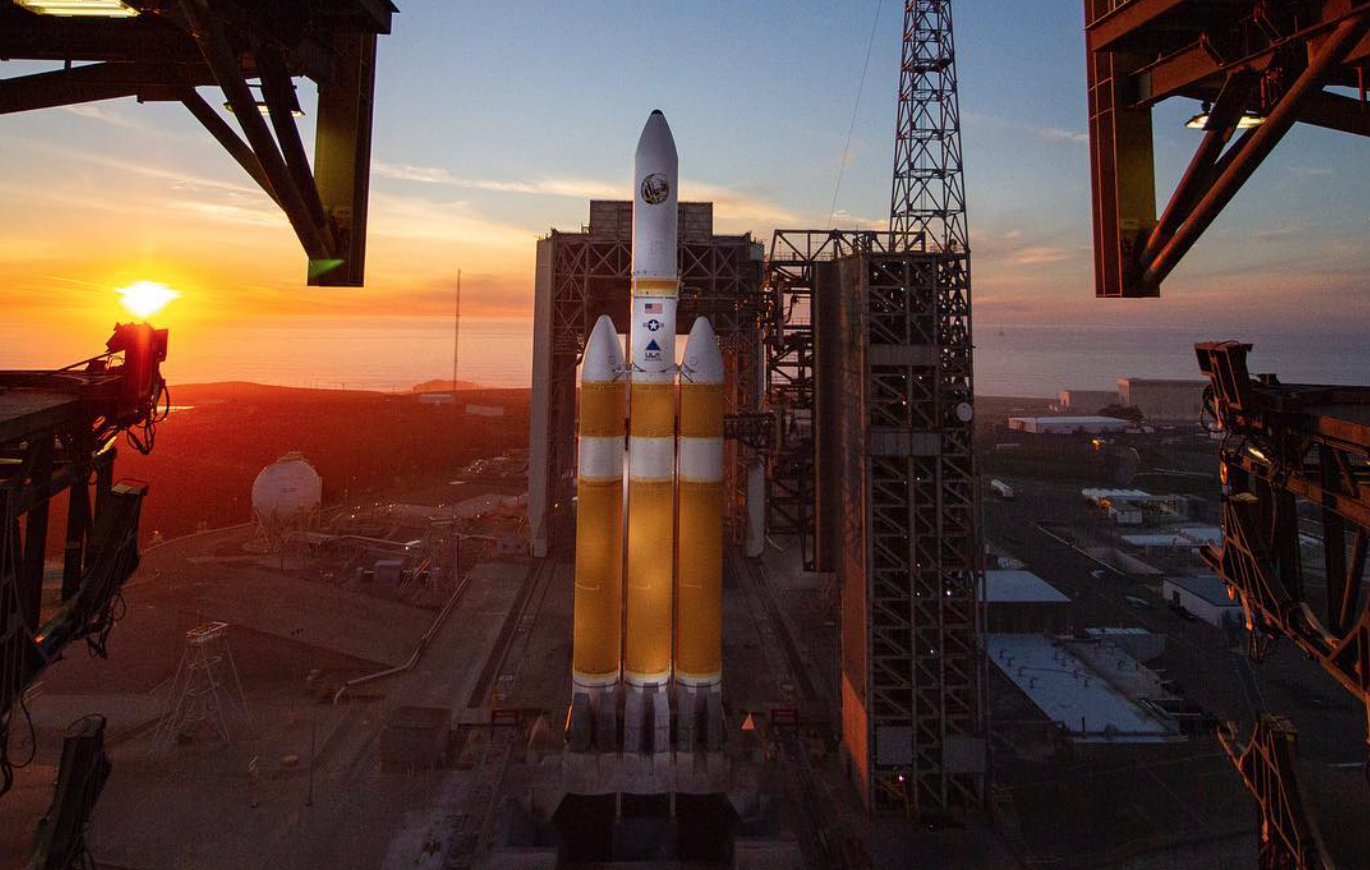
A rocket launch carrying a payload for the National Reconnaissance Office (NRO) was cancelled at the last minute this weekend due to a problem during final countdown.
With seven seconds to go, it was decided the United Launch Alliance (ULA) Delta IV Heavy rocket would no longer take off. Officials said during a live stream of the event that the halt was due to an unexpected condition detected by computers during terminal countdown.
Read more: Russia is building a rocket with a nuclear engine
The mission was set up to launch from Space Launch Complex 6 at Vandenberg Air Force Base in California Saturday, and was widely-publicized on social media platforms during the day.
The 8:19 p.m. takeoff was intended to be the 28th mission for the U.S. NRO. But alongside the YouTube cancelation, a series of statements online confirmed it would not be happening.
"The launch of a United Launch Alliance Delta IV Heavy carrying the NROL-71 mission for the NRO was scrubbed today due to an unexpected condition during terminal count at approximately 7.5 seconds before liftoff," a statement said. The note added: "The team is currently reviewing all data and will determine the path forward. A new launch date will be provided when available."
Much to the disappointment of those watching the stream, at 8:28 p.m. the ULA said the launch had been scrapped and detanking of cryogenic propellants from vehicle would begin. Just prior, the ULA had said that final status checks were underway and the Terminal Countdown Sequencer Rack was getting ready to take control of staggered ignition of the rocket's main engines.
Flames from the igniters were briefly seen burning from the base of the rocket.
The ULA tweeted:
A hold was called approximately T-minus 7 seconds due to a problem detected by the Terminal Countdown Sequencer Rack.
— ULA (@ulalaunch) December 9, 2018
In an earlier release, published December 5, the ULA said the Delta IV Heavy was comprised of three booster cores each powered by a liquid hydrogen/liquid oxygen engine. "To date ULA has a track record of 100 percent mission success with 131 successful launches," it said.
The aim of the NROL-71 payload was classified. According to CBS News, analysts speculated the mission was an "advanced imaging reconnaissance spacecraft." Without elaborating, the ULA had only revealed the mission was "in support of our country's national defense missions."
It stated: "[The] Delta IV rocket has served the nation's high-priority U.S. Air Force and National Reconnaissance Office space programs with distinction since entering service in 2002."
A new date for the takeoff had not been confirmed by ULA or the NRO at the time of writing. The NRO is the U.S. government branch responsible for operating America's intelligence satellites.
SpaceflightNow reported the liftoff is expected to be delayed "at least a few days."
"The abort at T-minus 7.5 seconds suggests the countdown stopped around a half-second before the first of the Delta 4-Heavy's three main engines was supposed to ignite," the site reported.
Uncommon Knowledge
Newsweek is committed to challenging conventional wisdom and finding connections in the search for common ground.
Newsweek is committed to challenging conventional wisdom and finding connections in the search for common ground.
About the writer
Jason Murdock is a staff reporter for Newsweek.
Based in London, Murdock previously covered cybersecurity for the International Business Times UK ... Read more
To read how Newsweek uses AI as a newsroom tool, Click here.








